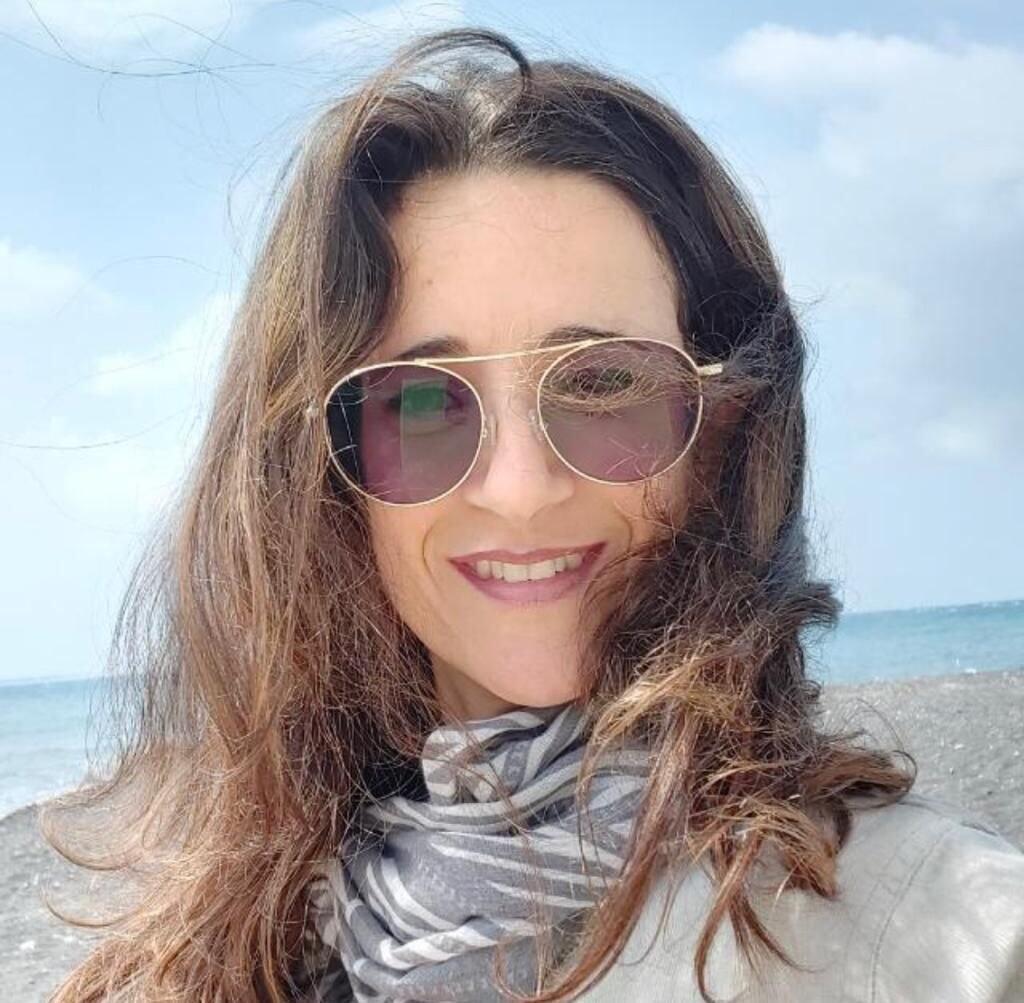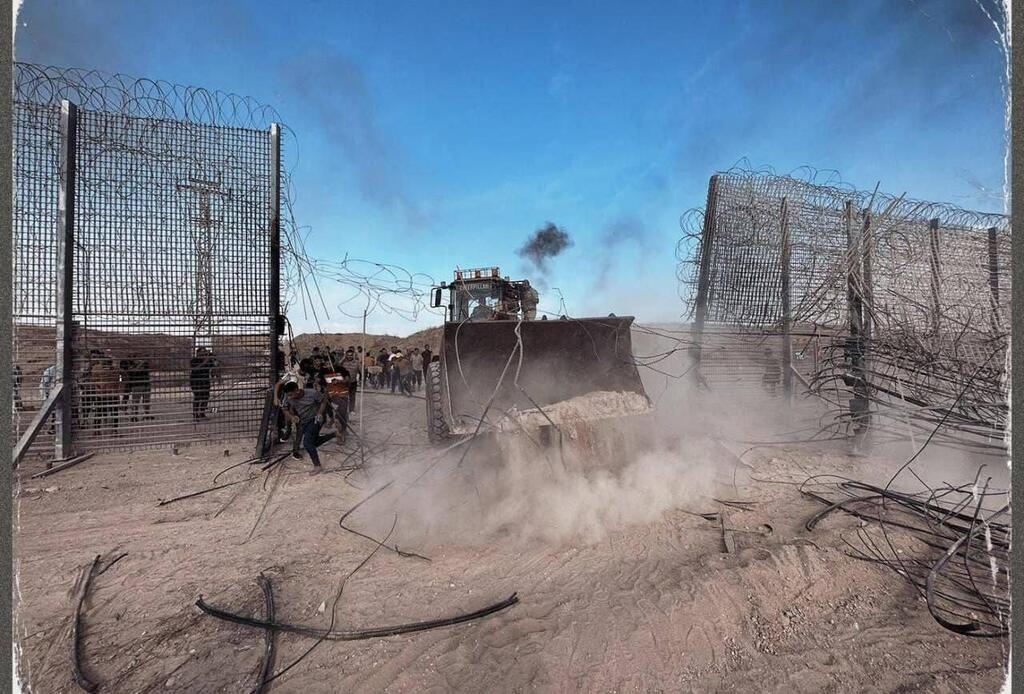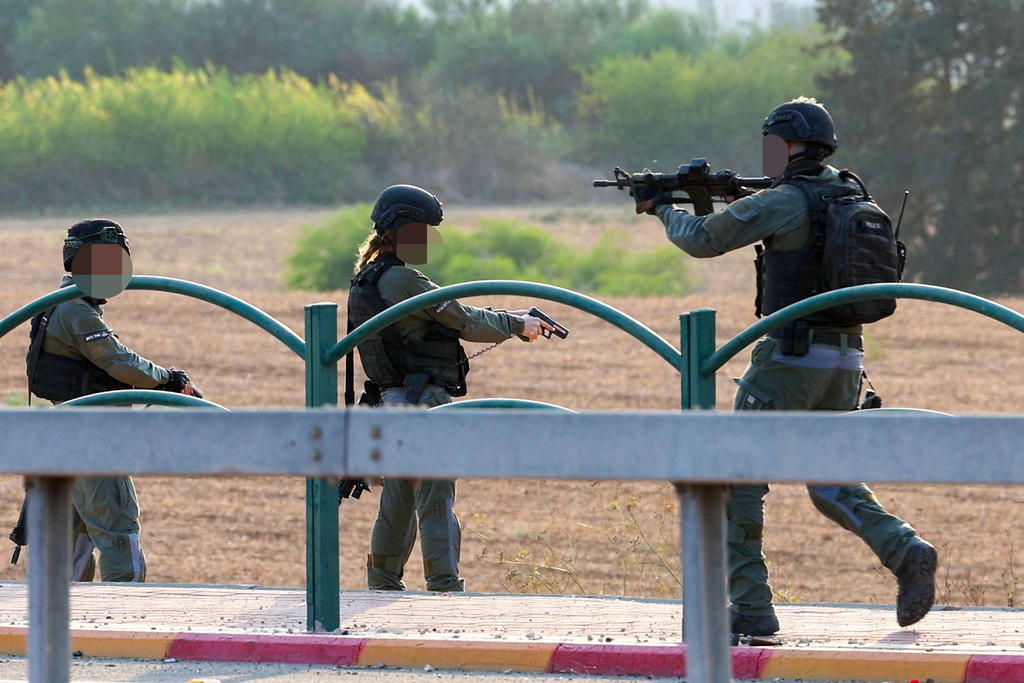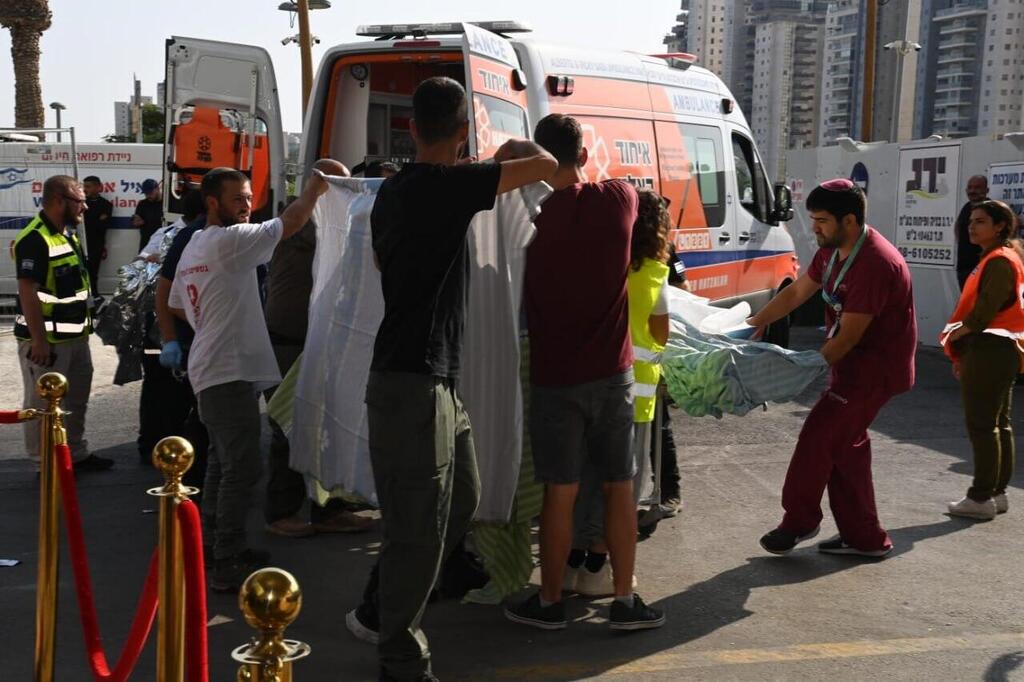Adi Efrat from Kibbutz Be'eri was captured by terrorists who infiltrated her home on Saturday in a murderous incursion. "They grabbed me by the hands and told me to come with them. I knew if I didn't do what they said, they’d kill me." The story she tells about those moments is terrible, and shockingly, it is one of many. According to the ZAKA emergency service, 108 bodies were recovered in the kibbutz. "We found a lot of weapons, grenades and RPG rockets," they said.
More stories:
"My story’s hard to process; I keep remembering more and more details all the time," she says. On that Saturday morning, her children and husband were elsewhere, and she was alone in her home’s bomb shelter when terrorists broke in.
"I can hear they're trying to barge in my house. I inform my family on WhatsApp that they're starting to enter, and within a minute, I hear them inside. I can hear them laughing, and I try to think about what to do if they enter the shelter. I didn't know that I should’ve been holding the doorknob lock. And that's it; within a second, they're inside, looking at me."
Efrat’s first encounter with the terrorists was frightening but not violent. "There were two of them. One spoke in English, and the other in Arabic. I speak a little Arabic. They tell me, 'Don't worry; we won't harm you.' So, I beg them to leave me alone, and they say, 'Come, come,' while all I’m wearing is a jacket and pajamas. Then they say, 'Come with us, don't worry; we just want a car. Do you have a car?' I tell them I don't have a car, and explain to them that it's a kibbutz and that there are many cars here. I say, 'A hundred cars,' I tell them - 'I need to take you to where the keys are at.' I tell them that I need to get dressed, and they let me do so and put on shoes. They look at me from time to time to make sure I'm not taking out a weapon, and then they let me take my bag and take me outside, and we walk around the kibbutz."
"They talk to me, asking, 'Do you have children? Do you have a husband?' We reach the main road, and I see an IDF soldier from afar. 'He's ours,' they tell me, and then the soldier shouts at me in Hebrew, 'Come, come,' and I show him that I can't because my hands are held, and then the shooting starts in our direction, and they grab me and start running. They're not trying to confront them; they're taking me with them, and I'm trying to convince them that they’re heading in the wrong direction - because they're going westward (back toward Gaza), and from my perspective, this isn’t good. I'm yelling at them, 'Where are you taking me?' and they don't respond; they're talking to their comrades on their communication devices, shouting and confused, not knowing where to run to."
After a moment of confusion, the two terrorists took Efrat to the home of an elderly woman from the kibbutz, where her Filipina caretaker was - along with more terrorists. "There, you find people who are much more organized; they won’t talk. They have rules; they’re dressed like soldiers in uniforms, and they’re more heavily armed.
5 View gallery
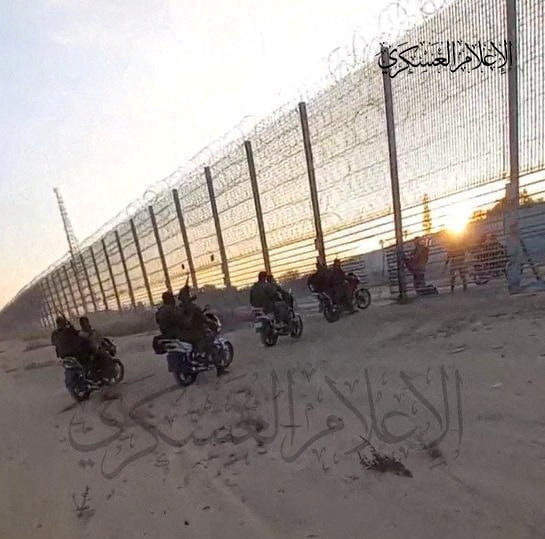

Hamas terrorists entering Israel
(Photo: Qassam Bridges media office/Handout via REUTERS)
"They immediately tied my hands behind my back. Some time passes, and they keep trying to silence the elderly woman because she doesn't understand what's happening, and so she keeps asking. Then I hear a child screaming for his dad, and someone arrives with a two-year-old child, holding him in the air; he's just hanging there. He throws him next to us, and the child screams, asking for his father, and he tries to run away, but they don't let him. The caretaker, who’s also tied up, tries to hold him, and he escapes, screaming, 'Dad, Dad,' and I try to ask who his father is. I try to distract them because I'm afraid that if he escapes, they’ll shoot him. The child starts talking to me and explaining who his father is."
From there, the horror continues. "Another child, about 7-8 years old, arrives with his mother, whom I recognize. She has several gunshot wounds, her entire shirt is soaked with blood, and she's trembling, struggling to walk. They bring her as well, throwing her onto the porch next to me. She tells me they shot her husband and that her baby girl is dead. I ask if she’s sure, maybe she's not dead, and she says, 'They shot her in the head.'
"I can't hug her; her hands are bound. I put my head on hers, and I cry with her, but they silence us. They go to the elderly woman's closet and bring the mother a new shirt, but she can't change; she can't breathe because she's injured. She makes me swear, 'Adi, I won't survive; please take care of my children.' And I tell her, it’ll be okay. The older child asks, 'Mom, what will they do to us?' She tells him, 'They’ll kill us,' and I try to say something else.
"The man who brought her comes to me and says, 'I need you. If you do as I say, everything will be okay. They didn't do what I told them; they tried to escape, so I shot them.' I understood that if I didn't do as he said, he'd simply kill me too. He takes me in the direction of the road and tells me, 'Do you see that car? I want you to remove our dead from there. Some of my friends died there.' I walk toward the car with my hands raised because I don't know if IDF soldiers can see me or not. Suddenly, there's gunfire, and then he runs toward me, grabbing me by the hand and running away with me and some of his friends. They're all running in the same direction, saying, 'Run, run.'"
Efrat was then taken to another house where more terrorists were gathered. "The entire house was on fire, and there were a lot of weapons strewn on the ground. I saw shoulder-fired missiles, an armored vehicle burning and bodies outside the house. They wanted me to enter the house, but it was burned down, and I was very hot; I couldn't go inside. I saw a shed at the entrance to the house, and I went inside. I saw many people in the small storage shed, fighting. They allowed me to enter deeper.
"They were shooting, there was a strong smell of gunpowder, and ricochets were flying toward me. I protected my head with a binder I found. At some point, I saw a pack of diapers nearby, and I covered myself with them. I sat there huddled up, and more terrorists kept coming. Whenever someone looked at me strangely, I would tell them, 'Your friends brought me.' As time passed, fewer people kept coming, the shooting started to subside, there were fewer shouts in Arabic, and then, I don't know how much time had passed, I heard Hebrew from a distance. The terrorists entered the house, into the backyard, and then they ran away."
Adi realized that Israeli soldiers might see movement from the shed and mistake it for terrorists, so she called out to them. "I shouted 'soldiers,' and I heard someone say, 'There's a woman here, there's an Israeli civilian here,' and the shooting resumed.
Despite the renewed gunfire, IDF soldiers arrived at her location. "I heard very organized teams approaching, and they came closer, and I shouted 'soldiers, soldiers' again, and then their commander approached me, asked me, 'What happened here?' I told him there were many terrorists here and showed him the direction they went to. He sent a team to clear the house, and then they tried to advance with me.
The battle was still ongoing. "They told me, 'Stay close to us now, we're with you, we'll protect you.' We tried to advance, but they opened heavy fire in our direction, and we all took cover. Then they decided not to advance further. They went back to the courtyard where there were many bushes, and they constantly assigned someone to me. Everyone kept calling for me, telling me that they were here to watch over me, that I should stay close to them, that everything would be fine, and they would rescue me. I told them, 'Leave me in the bushes, do what you have to do, don't worry about me, you don't need me to weigh you down,' and they said, 'What do you mean? This is why we’re here, we're all here, we're with you.'"
The soldiers surrounding her fought, and four of them were hit, according to Adi. "Soldiers were injured right in front of my eyes; they bring them to the center of the courtyard, treat them, bandage them. I hear the officer is injured, and I hear the sergeant telling his soldiers, 'Listen, he's wounded, but we're still a team, I'm your commander now – you do what I say.' And they concur. The fighting is intense, and he says, 'We'll protect civilians here, we'll rescue them, that's why we're here, we're continuing at full force.'"
And they pressed on. "I was extracted under fire. At some point, we had to lie on the ground, take cover behind cars and continue fighting. We couldn't move an inch, and they fought desperately, risking their lives. People keep asking where the IDF was. I'm not one to analyze, but the IDF soldiers fought with all their might. There's no way to describe their dedication to me."
In the end, the soldiers successfully rescued Adi and several others from the kibbutz. "What happened to me was a miracle. And even now, I don't know what happened to that woman and her two children."



